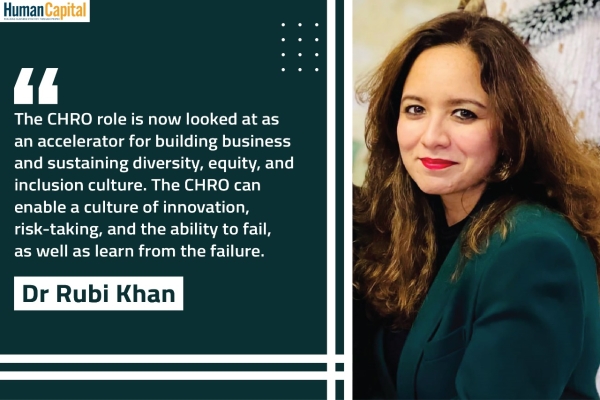A lot has already been said and written on Emotional Intelligence (EI) and its growing importance in cultivating this intelligence, from early on in life. Theoretically, EI is defined as a set of four interrelated abilities focused on the processing of emotional information. These four abilities involve:-
(a) perceiving emotions;
(b) using emotions to facilitate cognitive activities and motivate;
(c) understanding emotions, and
(d) managing emotions in oneself and other people to handle relationships
The ongoing pandemic has tested our emotional quotient significantly. According to Goleman, “IQ contributes about 20 per cent to the factors that determine life success, which leaves 80 per cent to other forces”.
So what are these other forces? No one has explained it exactly so far as there is a high level of subjectivity, depending on childhood experiences, upbringing, growing environment, right mentors / teachers and such other influences. But existing data suggests EI can be as powerful, and at times more powerful, than intelligent quotient. So how could we cultivate our own EI skills along with that of our teams, to manage our relationships better?
Being Self Aware in a Remote Working World
Gary Yukl, a prominent researcher in leadership says, “Self-awareness makes it easier to understand one’s own needs and likely reactions if certain events occurred, thereby facilitating evaluation of alternative solutions. Every human being has emotional intelligence but the degree may differ, from person to person. The journey to be an empathetic leader begins with understanding “You”. A person who is self-aware, tends to usually make better decisions, manage social relationships better and lead teams with the right mix of humane. If you are seeking to know your true self, apart from introspections and self-reflection, psychologists have flooded us with myriads of EQ-based psychometric instruments, which throw up some scores.
One such EQ test is Goleman’s 12 questions. Do You – Can You – Are You :
♦ Understand your strengths and weaknesses?
♦ Comfortable with change and open to novel ideas?
♦ See things from another person's point of view and sense what matters most to that person ?
♦ Enjoy helping co-workers develop their skills ?
♦ Read office politics accurately?
♦ Motivated by the satisfaction of meeting your own standards of excellence ?
♦ Optimistic in the most difficult of circumstances ?
♦ Find "win-win" solutions in negotiations and conflicts ?
♦ The kind of person other people want on a team?
♦ Usually persuasive?
♦ Let customers' needs determine how you serve them?
♦ Dislike / Hate to let things go downhill?
If your responses are yes to six or more of the above questions, then you are working with maturity. You have a good sense of understanding of your own emotions, and are also receptive to others’ emotions as well. Now let us look at this same self –awareness in a remote working set up. According to a Gallup study, 64 per cent workers at MNCs work with virtual teams and 52 per cent of team members are based outside the company’s home country. With the ongoing pandemic, virtual workplaces and hybrid working models are here to stay for many years to come.
Thus, where does emotional intelligence stand in such a business climate, especially in light of the communication challenges that remote work introduces?
Need for or the importance of emotional intelligence does not go away just because we work in digital workplaces. It's just as important and more as when all members of a company worked together in a central location.
♦ Practice different modes of communication – face to face, on phone, on emails, on a video call on social media!
♦ Read various cultural perspectives - What may come across as kind and encouraging in person might seem brusque through email. What may seem too stern in one country may feel lax elsewhere.
♦ Moderate tones - be it on email or voice, e.g. if you wish to convey a negative news / handle a conflict situation / do a negotiation, in a video / audio call, think how would you like to hear the same news in digital communication? You cannot read the body language, facial expressions, eye contact in such an environment. Genuine thoughts and messages are never lost even if you are unable to read facial expressions in virtual communication.
♦ It may also be extremely essential to practice “self-regulation” especially in the behavioural areas which may become irritants to others. For example, if you are aware that you are stickler for timelines, and you make a call to a team member. Avoid getting straight to the point, have a social conversation first – understand the other person’s current circumstances and then seek the work deliverables, but with courtesy.
Mastering Emotional Intelligence within teams and workplaces
We have been taught that emotions are to be often left at the door when you begin work, professional space has little place for emotions. With business environments becoming more complex, regulations changing rapidly, digital revolutions marching right into our comfy cocoons, a workplace devoid of emotions has devastating effects on employees straight up to the Directors. Humans, unlike Robots, are emotional. Many managers or leaders attempt to be emotionally invested leaders but people always know – what is from the “heart” and what is “from management books”.
The norms of digital communication have been thrust upon us during COVID times, but the importance of EI traits will not reduce, rather it will be more needed. Building an emotional intelligent team requires mastery at not only managing your own emotions but creating an environment, where teams can thrive in harmony amidst individual differences.
♦ Know your team - Team members are beyond their job titles. Each member is unique and has a great story to tell. Managers and leaders would find it beneficial to know their team, beyond their project contribution. They should also explore what more in terms of talents, knowledge and diverse skills a team member can bring outside his work.

♦ Discuss creative ways to handle difficult situations – Putting stress on team members affects their health and well-being, thereby affecting the output. Managers can try alternative solutions, prepare schedules, allocate right jobs to the right person, keep space for quick team chats and individual breaks.
♦ Ensure all voices are heard – Most of us have a habit of jumping the gun, found more frequently in digital communication. Patience to hear the other person till the end of the sentence needs good listening skills. In a social conversation, speaking with respect and courtesy despite conflict, demonstrates maturity.
♦ Ignite passion - ‘The fire in the belly’ statement is all about “passion”. Igniting the passion at work, finding a mission for the team, where people feel a sense of purpose and achievement helps reach high emotional bonding in teams.
“Organisations are not built with concrete. They are made of human beings, who enjoy spending time together, feel proud, express emotions and support each other in times of need. Managers who lead with their hearts are today required more than ever in Digital Times.”
Disclaimer: The views and opinions expressed in this article are solely those of the author, in a personal capacity. Assumptions made within the analysis are not reflective of the position of the company, the author is associated with.
Follow us on LinkedIn, Facebook, Instagram, Twitter for latest HR news and insights

Has COVID-19 forever changed the way we live and work?
Trending
-
SBI General Insurance Launches Digital Health Campaign
-
CredR Rolls Out 'Life Happens' Leave For Its Employees
-
Meesho Announces 30-Week Gender-Neutral Parental Leave Policy
-
Microsoft Unveils Tech Resilience Curriculum To Foster An Inclusive Future
-
60% Indian Professionals Looking For Job Change Due To COVID: Survey
-
SpringPeople And Siemens Collaborate For Digital Transformation Push
-
86% Professionals Believe Hybrid Work Is Essential For Work Life Balance: Report
-
Almost 1 In Every 3 People's Personal Life Affected Due To Work Stress
-
Meesho Rolls Out Reset And Recharge Policy For Employees
-
80% Of Talent Leaders & Academics Say Pandemic Changed Skill Needs For Youth: Report
-
Hero Electric Rolls Out 'Hero Care' Program For Employees
-
Human Capital In Collaboration With ASSOCHAM Hosts Virtual Conference
-
IKEA India, Tata STRIVE Collaborate To Create Employability And Entrepreneurship Opportunities
-
SAP India, Microsoft Launch Tech Skilling Program for Young Women
-
DXC Technology, NASSCOM Collaborate For Employability Skills Program
-
Lenskart To Hire Over 2000 Employees Across India By 2022
-
Mindtree Launches Learn-and-Earn Program
-
Tata AIA Extends 'Raksha Ka Teeka' To Its Employees
-
Swadesh Behera Is The New CPO Of Titan
-
NetConnect Global Plans To Recruit 5000 Tech Professionals In India
-
Hubhopper Plans To Hire 60% Of Indian Podcasters By 2022
-
Corporate India Needs More Women In Leadership Roles: Report
-
Aon to Invest $30 Million and Create 10,000 Apprenticeships by 2030
-
Tech Mahindra Launches ‘Gift a Career’ Initiative for Upskilling of Youth
-
40% Women Prefer Flexible Working Options in Post-COVID World: Survey
-
3 out of 4 companies believe they can effectively hire employees virtually: Report
-
Vodafone , CGI and NASSCOM Foundation launch digital skills platform
-
Odisha: Bank, postal employees to deliver cash for elderly, differently-abled persons
-
Skill India launches AI-based digital platform for "Skilled Workforce"
-
Hiring activity declines 6.73% in first quarter: Survey
-
70% startups impacted by COVID-19 pandemic
-
Bajaj Allianz Life ropes in Santanu Banerjee as CHRO
-
Over 70 Percent MSMEs look at cutting jobs to sustain businesses
-
93 Per Cent employees stressed about returning to office post-lockdown
-
Johnson & Johnson India announces family benefits for same gender partners
-
Indian firms turning friendly towards working mothers
-
Welspun India names Rajendra Mehta as new CHRO
-
Wipro partners with NASSCOM to launch Future Skills platform



Human Capital is niche media organisation for HR and Corporate. Our aim is to create an outstanding user experience for all our clients, readers, employers and employees through inspiring, industry-leading content pieces in the form of case studies, analysis, expert reports, authored articles and blogs. We cover topics such as talent acquisition, learning and development, diversity and inclusion, leadership, compensation, recruitment and many more.
Subscribe Now












































Comment